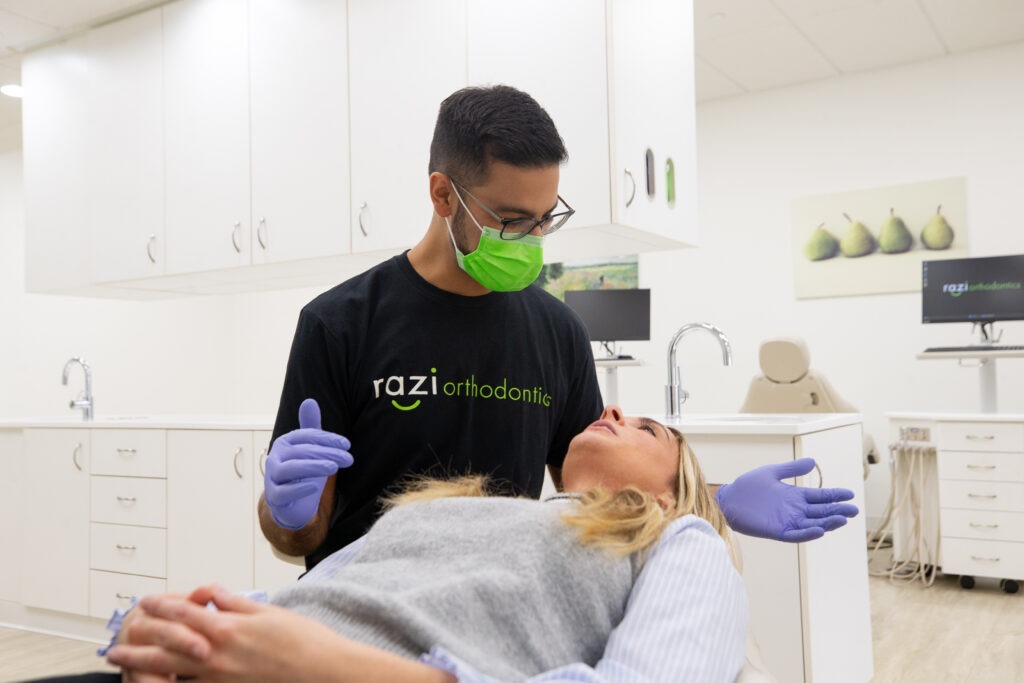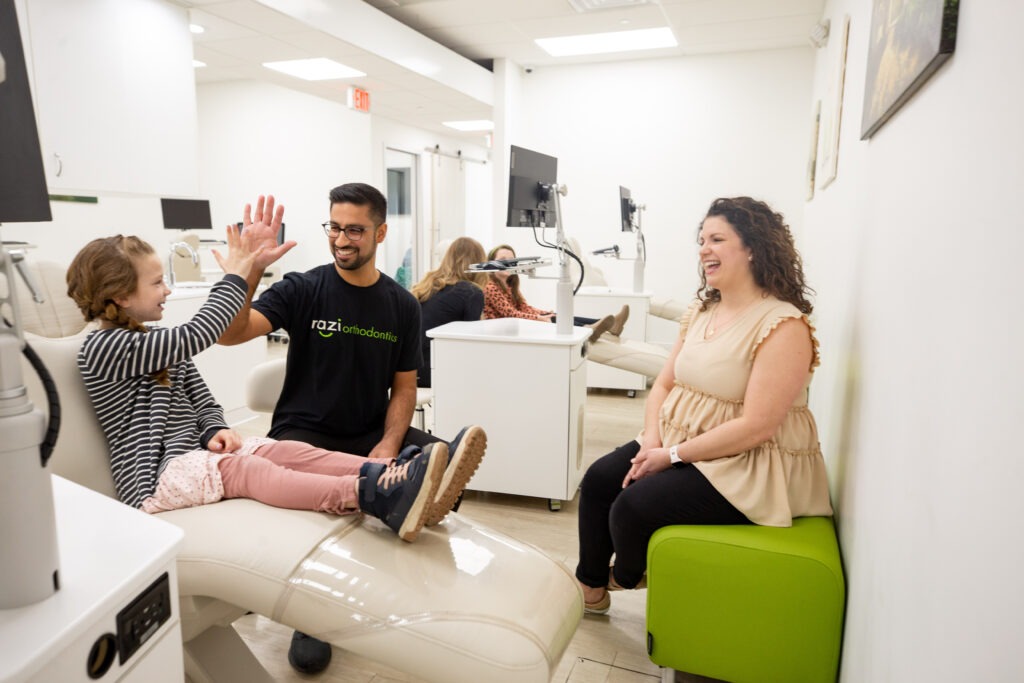Here at Razi Orthodontics, we value the hardworking care of a general dentist. In fact, did you know that every orthodontist has to get a degree in general dentistry before they go on to specialize in your smile? It’s true! That being said, there are some things you should definitely leave to Dr. Razi. Let’s take a moment to learn a little more about the difference between an orthodontist and a dentist.
What Are The Differences?
Oral health is a critical component of our overall well-being, and in this realm, both dentists and orthodontists play pivotal roles. While they both deal with aspects of dental care, their areas of expertise differ considerably. It’s crucial to understand these differences to make informed decisions about your oral health.
Foundational Education: Shared Beginnings
Every journey into dental care begins with foundational education. Both orthodontists and dentists embark on a rigorous academic journey. This starts with completing college prerequisites tailored to dental school admissions—courses in biology, chemistry, and physics. Following this, they undergo four intense years in dental school, culminating in a Doctor of Dental Surgery (DDS) or Doctor of Dental Medicine (DMD). Here, they learn everything from dental anatomy to the complexities of various dental procedures.
General Dentistry: The Broad Spectrum
Once they step out with their DDS or DMD, dentists are equipped to tackle a wide array of oral health challenges. Their scope is broad and versatile.
- Preventative Care: Dentists emphasize the importance of prevention. Through regular check-ups, cleanings, and X-rays, they can monitor oral health and prevent minor issues from escalating.
- Restorative Procedures: When dental problems arise, dentists can perform procedures like fillings, crowns, bridges, and root canals. They restore the functionality and aesthetics of damaged or decayed teeth.
- Cosmetic Procedures: Beyond functionality, dentists enhance the beauty of one’s smile. Through teeth whitening, veneers, and other cosmetic treatments, they can dramatically transform appearances.
- Basic Orthodontic Care: Some dentists, especially those with additional training, might offer braces or Invisalign treatments, particularly for less complicated cases.
In essence, a dentist is your first line of defense, providing care, treatment, and guidance on general oral health issues. Their role in the early detection of potential problems cannot be overstated.
Orthodontics: Hardworking Specialists
While dentists cover a broad spectrum, orthodontists go on to develop a deep specialization in the teeth and jaws. After completing dental school, an orthodontist commits to an additional two to three years in a specialized orthodontic residency. Here, they dive deep into the nuances of malocclusions (improper bites), understand the intricacies of facial growth and development, and master the art and science of moving teeth.
This specialized training allows orthodontists to diagnose, prevent, and correct structural problems in the mouth. They become adept in using braces, retainers, Invisalign, and other orthodontic devices. As with all medical professionals, continuous learning is paramount, and orthodontists consistently update themselves with advancements in orthodontic science.

When to See a Dentist vs. an Orthodontist
Knowing whom to consult can make all the difference in your oral care journey:
- For general dental health, regular maintenance, cavities, gum issues, and common dental problems, a dentist is generally your go-to.
- If you’re facing challenges with bite problems, issues with teeth spacing, alignment concerns, or if you’re considering specialized orthodontic treatments, an orthodontist is the specialist you need.
It’s worth noting that these professionals often work hand-in-hand. Many patients will find themselves in the care of both a dentist and an orthodontist over time, ensuring a holistic approach to oral health.
The Value of Each Profession in Comprehensive Oral Care
Both dentists and orthodontists hold unique and invaluable places in the realm of dental care. A dentist, with their broad training, addresses a wide variety of oral health needs, ensuring overall dental well-being. On the other hand, an orthodontist, with their specialized training, ensures that teeth function in harmony and align beautifully, enhancing both functionality and aesthetics.
It’s not about one being superior to the other; it’s about understanding and appreciating the unique skills and knowledge each brings to the table. For a comprehensive oral care regimen, having both a trusted dentist and a competent orthodontist is invaluable.
When it comes time to see the doctor, understanding the roles of both dentists and orthodontists is a big deal. While their paths might diverge after dental school, their shared goal remains the same—ensuring the best possible oral health and confident smiles for their patients. Whether you’re seeking general dental care or specialized orthodontic treatment, knowing who to turn to can ensure you’re always in good hands.

Still, Have Questions? We’re Here For You!
We hope you feel a little more confident when it comes to understanding the differences between a general dentist and an orthodontist, but hey, it can be complicated! If you’ve got questions, we’ve got answers at Razi Orthodontics. Dr. Kaleem Razi is proud to be Wheaton’s local orthodontics expert, and he loves getting to know his patients, and that means you! Give us a call today or fill out this convenient form right now, and we can get started on the smile of a lifetime!
 Free Consult
Free Consult
